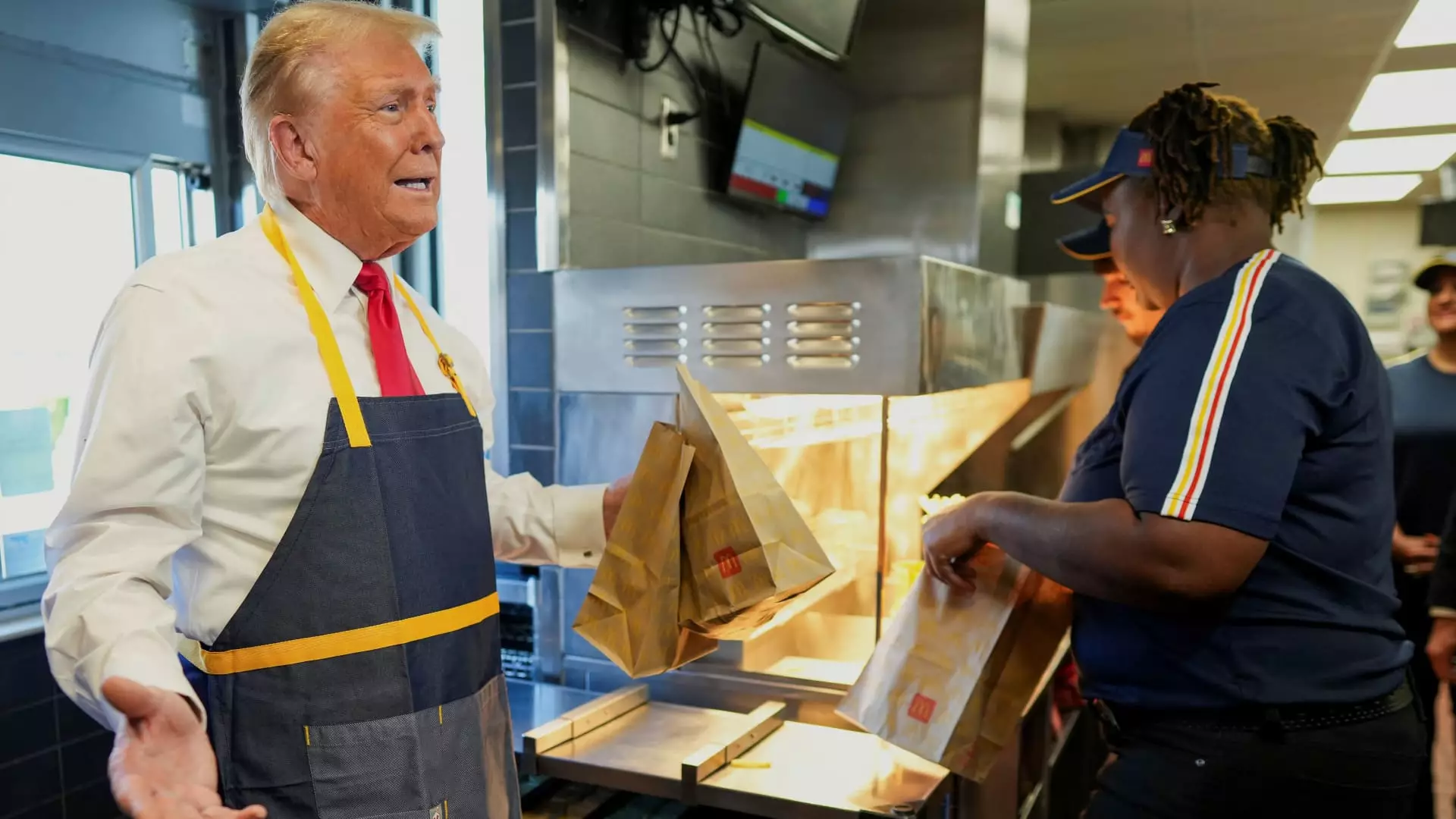As political campaigns unfold in the United States, brands that were once considered neutral in the eyes of the electorate are now being swept into the fray. McDonald’s, a perennial favorite in American culture, finds itself at the intersection of politics and public perception. Recently, former President Donald Trump’s visit to a McDonald’s in Pennsylvania generated considerable buzz, raising questions about the company’s political affiliations and its attempts to maintain a neutral stance during a contentious election cycle.
Fast food chains like McDonald’s have historically been seen as apolitical entities, serving burgers and fries to a diverse customer base. However, the brand’s exposure in political discussions indicates a significant shift. McDonald’s has become emblematic of American life, garnering attention not just for its menu offerings but also for its presence in political narratives. Thus, the company now faces the challenge of navigating this complex political landscape without alienating any segment of its consumer base.
Trump’s visit to the McDonald’s was intended not only as a publicity stunt but also as an opportunity to belittle his opponent, Vice President Kamala Harris. During his shift at the franchise, Trump attempted to discredit Harris by questioning her past claims of employment at McDonald’s. This accusation, while unsubstantiated, seems to reflect a broader strategy of characterizing opponents in a negative light to sway public opinion.
By mixing fast food with political rivalry, Trump was able to leverage the well-known brand to reinforce his narrative. However, this tactic puts McDonald’s in a precarious position. The company’s statement reaffirming its neutrality and its reluctance to endorse any candidate suggests its desire to sidestep partisan loyalties. Therein lies the dilemma: how does a brand with widespread popularity and visibility avoid becoming a pawn in the political game?
McDonald’s public relations strategy aims to project a neutral image, yet this approach may raise questions about authenticity. In their internal memo, the company stated, “McDonald’s does not endorse candidates for elected office, and that remains true in this race for the next President.” This position, while attempting to keep the brand free from political controversies, borders on a cautious avoidance of engaging with significant sociopolitical issues.
In a nation increasingly polarized by political affiliations, companies like McDonald’s struggle to maintain their customer base. The backlash against perceived political statements from corporations reflects a growing desire among consumers for brands to stay out of ideological battles. Recent studies suggest that public sentiment is shifting; fewer Americans believe businesses should engage in political discourse, and McDonald’s appears to align itself with this trend.
The McDonald’s brand has not only faced scrutiny due to political implications but also due to economic realities. Rising inflation and price increases at fast food chains have drawn public ire. With social media amplifying consumer complaints about exorbitant menu prices, Republicans have seized the opportunity to link these economic challenges to the current administration’s policies.
This scenario underscores an essential challenge for McDonald’s in balancing brand integrity and customer perception. An open letter from McDonald’s U.S. President addressing consumer concerns about pricing is a testament to the company’s recognition of the need for transparency. The contrast between brand loyalty and economic grievances highlights the complex dynamics confronting McDonald’s in an election year marked by heightened sensitivity toward cost of living issues.
As the political climate evolves, brands like McDonald’s must reassess their roles in societal discourse. The trend toward apolitical branding—where businesses attempt to focus solely on profit rather than social issues—will likely continue, especially in light of changing consumer attitudes. However, this poses the risk of being perceived as disingenuous or out of touch with societal realities.
Ultimately, McDonald’s navigates a tightrope, trying to keep its image intact while addressing the concerns of a politically charged customer base. The necessity for businesses to engage thoughtfully with social issues without alienating consumers has never been more pronounced. As we advance toward the climax of the election cycle, the fast-food giant will need to carefully balance its internal policies, customer expectations, and the realities of operating in a polarized environment.

